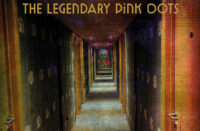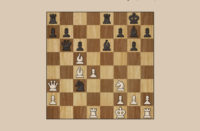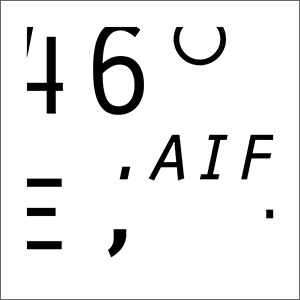
::..:::…..:..::….:::::..:::..:::::::……:::…::.:::….::::..:..:::…::…….::::
Apparat :: Walls (Shitkatapult, CD)
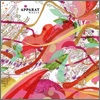 I’ve listened to this album at least 20 times over the last few weeks and I’ll be damned if I can form a strong opinion about it. I put it on, it plays, I listen to it, I forget about it when it stops playing. Then I play it again, which must account for something. If it was really bad, I’d just write a scathing review and be done. But something about Walls keeps drawing me back to it. Maybe it is just my melancholic nature, but Walls oozes vibrations of ineffable sadness right from the beginning with the sad, Warren Ellis-esque violin of “Not a Number.” RazOhara’s vocals, especially on “Hailin From The Edge” sound emotionally tired, as if there was too much sadness in the world for his spirits to ever be lifted. Not that this is in any way bad, mind you. Walls pulses and shuffles throughout its nearly 60 minutes and 13 tracks, staying down-tempo for most of the time. At times Walls sounds lush, the auditory equivalent to Corinthian leather, as on “Useless Information” or the near-house of “Limelight,” but for the most part, Apparat keeps things more minimal, making this good for the come-down part of the night. There’s enough here to keep you going, but nothing that will demand you get up and dance. Maybe, ultimately, Walls is the best example of the idea that the more familiar something is, the better it seems. Because I’ve listened to this a couple more times, and things are starting to stick. Perhaps, for me, a dive into the back catalog is in order. [Purchase
I’ve listened to this album at least 20 times over the last few weeks and I’ll be damned if I can form a strong opinion about it. I put it on, it plays, I listen to it, I forget about it when it stops playing. Then I play it again, which must account for something. If it was really bad, I’d just write a scathing review and be done. But something about Walls keeps drawing me back to it. Maybe it is just my melancholic nature, but Walls oozes vibrations of ineffable sadness right from the beginning with the sad, Warren Ellis-esque violin of “Not a Number.” RazOhara’s vocals, especially on “Hailin From The Edge” sound emotionally tired, as if there was too much sadness in the world for his spirits to ever be lifted. Not that this is in any way bad, mind you. Walls pulses and shuffles throughout its nearly 60 minutes and 13 tracks, staying down-tempo for most of the time. At times Walls sounds lush, the auditory equivalent to Corinthian leather, as on “Useless Information” or the near-house of “Limelight,” but for the most part, Apparat keeps things more minimal, making this good for the come-down part of the night. There’s enough here to keep you going, but nothing that will demand you get up and dance. Maybe, ultimately, Walls is the best example of the idea that the more familiar something is, the better it seems. Because I’ve listened to this a couple more times, and things are starting to stick. Perhaps, for me, a dive into the back catalog is in order. [Purchase]
::..:::…..:..::….:::::..:::..:::::::……:::…::.:::….::::..:..:::…::…….::::
Decomposure :: Vertical Lines A (Blank Squirrel, CD/DVD)
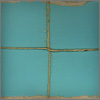 First things first — this is an album in the truest sense, incorporating as it does both an excellent full-length album of post-Postal Service electronic pop, and a DVD with 15 or so hours of extras, including the original source material, instrumental mixes, interviews, a 79-page pdf sketchbook, and more pictures than can easily be digested. There’s a lot here to be sure, and it appears quite overwhelming. It is quite rare that an artist has allowed such a penetrating view into their creative process: there are isolated beat mixes, “process recordings,” and the 11 hour-long recordings that comprise the base matter for the album. Very nice. The end result, VLA, is eleven tracks of break-the-mold electronic pop music that hurdles over genre lines from hiphop to glitch, idm, and piano-driven rockers in the Ben Folds vein. Caleb Mueller, Decomposure’s beatician, is at the peak of his power, wielding surgically precise drum programming with unexpectedly melodic vocals. Mueller spews forth a frothy mix of popart imagery with his lyrics, delivered alternately in a Ben Gibbard-like croon or in an Ice-T-esque spoken word monotone, or both at once at lightning speed. At times the vocals are mixed under the drums (most noticeably on “Hour 10,” a highlight), a nice change-up that shows just how much care Mueller pours into each track. Academically, this is serious music for people who love to pick apart percussion tracks. If there was a college course in electronic composition, this album should be one of the textbooks. If you stop trying to pick tracks apart and let the album flow, you’ll find that its a groovy 57 minutes of refreshing synthpop, a breath of fresh air and an exhilarating rush of adrenaline. [Purchase]
First things first — this is an album in the truest sense, incorporating as it does both an excellent full-length album of post-Postal Service electronic pop, and a DVD with 15 or so hours of extras, including the original source material, instrumental mixes, interviews, a 79-page pdf sketchbook, and more pictures than can easily be digested. There’s a lot here to be sure, and it appears quite overwhelming. It is quite rare that an artist has allowed such a penetrating view into their creative process: there are isolated beat mixes, “process recordings,” and the 11 hour-long recordings that comprise the base matter for the album. Very nice. The end result, VLA, is eleven tracks of break-the-mold electronic pop music that hurdles over genre lines from hiphop to glitch, idm, and piano-driven rockers in the Ben Folds vein. Caleb Mueller, Decomposure’s beatician, is at the peak of his power, wielding surgically precise drum programming with unexpectedly melodic vocals. Mueller spews forth a frothy mix of popart imagery with his lyrics, delivered alternately in a Ben Gibbard-like croon or in an Ice-T-esque spoken word monotone, or both at once at lightning speed. At times the vocals are mixed under the drums (most noticeably on “Hour 10,” a highlight), a nice change-up that shows just how much care Mueller pours into each track. Academically, this is serious music for people who love to pick apart percussion tracks. If there was a college course in electronic composition, this album should be one of the textbooks. If you stop trying to pick tracks apart and let the album flow, you’ll find that its a groovy 57 minutes of refreshing synthpop, a breath of fresh air and an exhilarating rush of adrenaline. [Purchase]
::..:::…..:..::….:::::..:::..:::::::……:::…::.:::….::::..:..:::…::…….::::
The Green Kingdom :: The Green Kingdom (SEM, CD)
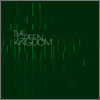 Hailing from the unfolding disaster that is Detroit, Michael Cottone ignores the post-industrial malaise of his hometown and indulges in some airy laptop ambience on his debut album. Crossing field recordings with electro-acoustic touchstones and heavily manipulated guitar, Cottoneblahblahblah- there’s any number of ways to describe this album, but all of them sound like hoary old cliches, ubiquitous enough to now be virtually meaningless. But they all apply here: “soundtrack to nonexistent movie,” “movie for your ears,” etc., etc. But where I’m unsuccessful in finding apt words to describe this piece of art, Cottone succeeds in making an eminently listenable album of, for lack of a better genre-mashup, pastoral-glitch, maybe. But that’s not entirely an accurate assessment. Here’s four associations I made when listening to this album for three continuous hours: Imagine BOC signed to Kranky. Tortoise abandoning stringed instruments. Harold Budd with only a guitar and Nobukazu Takemura producing. Fennesz without the puritanical rigidity. There are a thousand more (not literally) of these, and Green Kingdom is both all and none of them. Labeling a piece of art reduces it, makes it more identifiable, and therefore less mysterious. As such, I’ll refrain from making a definitive name for the sounds of Green Kingdom, because that’s not fair to you. I received this with virtually no leading information as to what it would sound like, and it is a pleasant surprise that first time. I wouldn’t want to ruin it. [Purchase]
Hailing from the unfolding disaster that is Detroit, Michael Cottone ignores the post-industrial malaise of his hometown and indulges in some airy laptop ambience on his debut album. Crossing field recordings with electro-acoustic touchstones and heavily manipulated guitar, Cottoneblahblahblah- there’s any number of ways to describe this album, but all of them sound like hoary old cliches, ubiquitous enough to now be virtually meaningless. But they all apply here: “soundtrack to nonexistent movie,” “movie for your ears,” etc., etc. But where I’m unsuccessful in finding apt words to describe this piece of art, Cottone succeeds in making an eminently listenable album of, for lack of a better genre-mashup, pastoral-glitch, maybe. But that’s not entirely an accurate assessment. Here’s four associations I made when listening to this album for three continuous hours: Imagine BOC signed to Kranky. Tortoise abandoning stringed instruments. Harold Budd with only a guitar and Nobukazu Takemura producing. Fennesz without the puritanical rigidity. There are a thousand more (not literally) of these, and Green Kingdom is both all and none of them. Labeling a piece of art reduces it, makes it more identifiable, and therefore less mysterious. As such, I’ll refrain from making a definitive name for the sounds of Green Kingdom, because that’s not fair to you. I received this with virtually no leading information as to what it would sound like, and it is a pleasant surprise that first time. I wouldn’t want to ruin it. [Purchase]
::..:::…..:..::….:::::..:::..:::::::……:::…::.:::….::::..:..:::…::…….::::
Lights Out Asia :: Tanks and Recognizers (n5MD, CD)
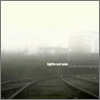 First of all, a big shout out to all the Tron fans out there who catch the reference in the title. Hell yeah. Tron blew the back of my nine year old head off when I saw it in the theatre. I went on to lie, beg, borrow, and sneak my way in to see it five more times. And while I’ll never make my own Tron suit, I’ll always defend it to the haters. Thanks to Lights Out Asia for bringing one more reminder of the awesomeness of Tron to light. Unexpectedly, the album itself if not a Wendy/Walter Carlos synth-fest, not at all. Matter of fact, that’s about as far away as one could get from what Tanks and Recognizers is — perhaps the most satisfying neo-shoegaze record ever. No qualms about it, I’m saying ever. Stripping away the excesses of My Bloody Valentine, and dumping it next to the aggression of Ride, Lights Out Asia marry the bliss of early Chapterhouse to the fragile structures of Slowdive, and end up sounding like Wayne Coyne fronting Flying Saucer Attack, with Mark Van Hoen producing. Hyperbole? Perhaps. I don’t think so, but I have to concede, that may be a little over the top. But only because this record is so solid from beginning to end. LOA masterfully match a floating kosmiche vibe with soaring vocals on “March Against The Savages,” and chiming guitars to Florian Fricke-washes of atmosphere on “Art Divided By Science.” And these are just two of nine fully-realized songs. It’s about time shoegaze came back, and Lights Out Asia is right out front. [Purchase
First of all, a big shout out to all the Tron fans out there who catch the reference in the title. Hell yeah. Tron blew the back of my nine year old head off when I saw it in the theatre. I went on to lie, beg, borrow, and sneak my way in to see it five more times. And while I’ll never make my own Tron suit, I’ll always defend it to the haters. Thanks to Lights Out Asia for bringing one more reminder of the awesomeness of Tron to light. Unexpectedly, the album itself if not a Wendy/Walter Carlos synth-fest, not at all. Matter of fact, that’s about as far away as one could get from what Tanks and Recognizers is — perhaps the most satisfying neo-shoegaze record ever. No qualms about it, I’m saying ever. Stripping away the excesses of My Bloody Valentine, and dumping it next to the aggression of Ride, Lights Out Asia marry the bliss of early Chapterhouse to the fragile structures of Slowdive, and end up sounding like Wayne Coyne fronting Flying Saucer Attack, with Mark Van Hoen producing. Hyperbole? Perhaps. I don’t think so, but I have to concede, that may be a little over the top. But only because this record is so solid from beginning to end. LOA masterfully match a floating kosmiche vibe with soaring vocals on “March Against The Savages,” and chiming guitars to Florian Fricke-washes of atmosphere on “Art Divided By Science.” And these are just two of nine fully-realized songs. It’s about time shoegaze came back, and Lights Out Asia is right out front. [Purchase]
::..:::…..:..::….:::::..:::..:::::::……:::…::.:::….::::..:..:::…::…….::::
Po :: The Sound of Summer Silence (Dynamophone, CD)
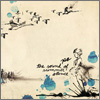 Dynamophone, Po’s label, is declaring this album’s sound to be ‘screengaze,’ but offer no further explanation. I’ll extrapolate that that is supposed to be an amalgamation of the early 90s’ shoegaze fuzz and electronically manipulated sounds. 18-year-old Daniel Porcelli has much more in mind than just making loud buzzing noises with stringed instruments. (Not that there’s anything wrong with that, heavens no, where would we be without Loveless or Just For a Day?) Po aims for serene beauty, which on …Summer Silence, lay in its abundant simplicity. For this is not complicated-sounding music. Mostly ambient with some scattered beats (“Seconds”), Po uses cello, bells, acoustic guitar, and vocals to extremely subtle lengths. In the same spirit of Eno’s original ambient thesis, that ambient music can work at either loud or soft volume, …Summer Silence acts as both something to focus attention on and as background soundtrack, and is equally compelling in either setting. If nothing else, this may be the most soothing album to be released in 2007, being an excellent soundtrack to a rainy afternoon, the sunshine in its grooves sure to drive the clouds away. [Purchase]
Dynamophone, Po’s label, is declaring this album’s sound to be ‘screengaze,’ but offer no further explanation. I’ll extrapolate that that is supposed to be an amalgamation of the early 90s’ shoegaze fuzz and electronically manipulated sounds. 18-year-old Daniel Porcelli has much more in mind than just making loud buzzing noises with stringed instruments. (Not that there’s anything wrong with that, heavens no, where would we be without Loveless or Just For a Day?) Po aims for serene beauty, which on …Summer Silence, lay in its abundant simplicity. For this is not complicated-sounding music. Mostly ambient with some scattered beats (“Seconds”), Po uses cello, bells, acoustic guitar, and vocals to extremely subtle lengths. In the same spirit of Eno’s original ambient thesis, that ambient music can work at either loud or soft volume, …Summer Silence acts as both something to focus attention on and as background soundtrack, and is equally compelling in either setting. If nothing else, this may be the most soothing album to be released in 2007, being an excellent soundtrack to a rainy afternoon, the sunshine in its grooves sure to drive the clouds away. [Purchase]
::..:::…..:..::….:::::..:::..:::::::……:::…::.:::….::::..:..:::…::…….::::
Ryan Rapsys :: The-Novus-Arcadia (Erratik Productions, CD)
 Duluth? Really? City on the western shores of Lake Superior? Stuff this great comes out of Duluth? “All the time,” you Minnesotans may say. Who knew? More please, if Ryan Rapsys is any sort of indicator of the quality of music coming from that fine fine city. For The-Novus-Arcadia is a mighty beast, an hour-long exploration of beat and melody, fourth-world ambience and dance. Rapsys is a classically trained composer, and it shows. Each track is a rich vein of that classic IDM feel, updated for an impatient age, welded together into a symphony that no orchestra would be brave enough to tackle. Well, maybe the London Sinfonetta. Novus is, if nothing else, an urgent record, filled with a sublime, anxious expectation and a rewarding, glorious release in each track. Building up tension through clever drum programming and a heightened sense of atmosphere, each track ups the ante for the album as a whole, while being complete in and of themselves. This is no small feat. Even the two beatless interludes, “Intermezzo-i” and “-ii” shy away from the nice side of ambient and bring out an almost isolationist-ambient aggression, making the tracks they lead into all the more explosive. I had never really considered Duluth at all, really, no more so than the very probably state of Idaho, and now I find I have been remiss. This is fantastic stuff. What else have you got there? [Purchase
Duluth? Really? City on the western shores of Lake Superior? Stuff this great comes out of Duluth? “All the time,” you Minnesotans may say. Who knew? More please, if Ryan Rapsys is any sort of indicator of the quality of music coming from that fine fine city. For The-Novus-Arcadia is a mighty beast, an hour-long exploration of beat and melody, fourth-world ambience and dance. Rapsys is a classically trained composer, and it shows. Each track is a rich vein of that classic IDM feel, updated for an impatient age, welded together into a symphony that no orchestra would be brave enough to tackle. Well, maybe the London Sinfonetta. Novus is, if nothing else, an urgent record, filled with a sublime, anxious expectation and a rewarding, glorious release in each track. Building up tension through clever drum programming and a heightened sense of atmosphere, each track ups the ante for the album as a whole, while being complete in and of themselves. This is no small feat. Even the two beatless interludes, “Intermezzo-i” and “-ii” shy away from the nice side of ambient and bring out an almost isolationist-ambient aggression, making the tracks they lead into all the more explosive. I had never really considered Duluth at all, really, no more so than the very probably state of Idaho, and now I find I have been remiss. This is fantastic stuff. What else have you got there? [Purchase]
::..:::…..:..::….:::::..:::..:::::::……:::…::.:::….::::..:..:::…::…….::::







